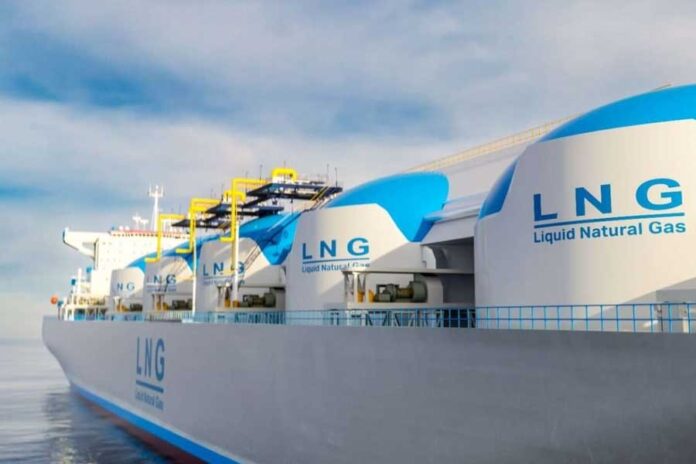By: Staff Writer
July 16, Colombo (LNW): Petronet LNG Ltd, India’s largest liquefied natural gas company, will begin supplying LNG to Sri Lanka in 2025. Initially, LNG will be delivered in containers loaded on ships, with plans to construct an import terminal later.
Petronet’s new venture with Sri Lanka signifies a significant step in regional energy collaboration, highlighting the strategic importance of LNG in meeting energy needs and supporting economic growth in both countries
Sri Lanka has been in discussions with Petronet and other suppliers for years to meet its energy needs for electricity generation and other industries. The agreement with Petronet marks the conclusion of these discussions.
Petronet’s CEO, Akshay Kumar Singh, announced that the company will ship 850 tonnes of LNG daily to Sri Lanka in containers of 17 tonnes each.
This arrangement is set for five years, during which Petronet will build a floating LNG receipt facility at Colombo port.
The LNG supplies are expected to commence in about 18 months. Petronet imports LNG from Qatar, Australia, and other countries through its terminals in Dahej, Gujarat, and Kochi, Kerala. The LNG for Sri Lanka will be loaded in containers from Kochi, with a ship ferrying 100 containers every two days.
In Colombo, a small regasification unit will convert the LNG back into gas for use in gas-fired power plants.
Additionally, Petronet plans to commission a floating storage regasification unit (FSRU) in Colombo, pending approval from the Sri Lankan government by 2025, with the facility expected to be built by 2028.
The estimated investment for this project is around Rs 2,500 crore, subject to a detailed feasibility report once the FRSU proposal is approved.
Petronet, which recently extended a 7.5 million tonnes per year LNG import deal with Qatar for an additional 20 years beyond 2028, is exploring further gas sourcing, including long-term contracts. The company is expanding its Dahej facility from 17.5 million tonnes per annum to 22.5 million tonnes and plans to construct a new terminal in Odisha.
Furthermore, Petronet’s Kochi facility, which currently operates at a fifth of its capacity, will start operating at full capacity next year following the commissioning of a pipeline to Bengaluru.
Given India’s rapidly expanding economy and its energy demands, natural gas is viewed as a transition fuel towards achieving net zero carbon emissions.
The Indian government aims to increase the share of natural gas in the primary energy mix to 15% by 2030 from the current 6.2%. As domestic production meets only half of the demand, LNG imports are crucial. Besides the 7.5 million tonnes from Qatar, Petronet also imports LNG from the Gorgon project in Australia. Currently, India imports 1.44 million tonnes of LNG annually, which is expected to increase by 1.2 million tonnes between 2025 and 2028.

